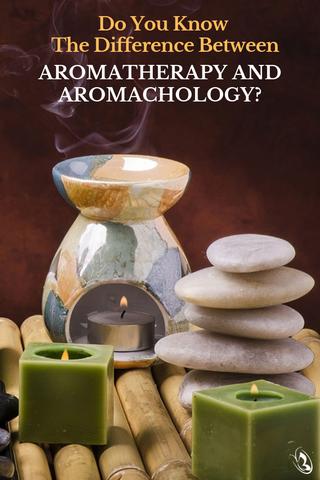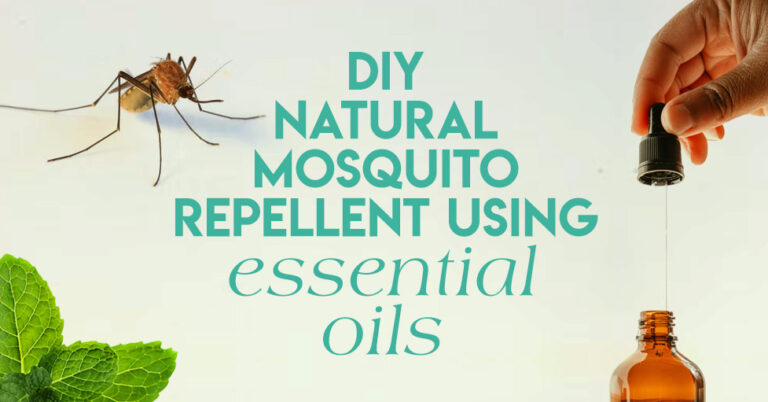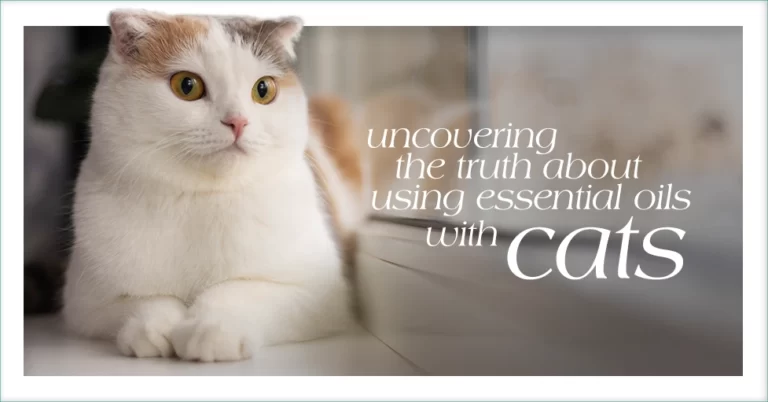Do You Know The Difference Between Aromatherapy And Aromachology?
If you’ve spent time researching various essential oil uses, you may have come across two similar words – “Aromatherapy” and “Aromachology.” Both of these words are incredibly relevant when it comes to essential oils. Although these two words sound alike, they are different in meaning. Below, we’ll break down the differences between aromatherapy and aromachology while describing how vital they are when it comes to essential oil uses.
What Is Aromatherapy?
Aromatherapy refers to the use of essential oils to improve someone’s health, both physically and psychologically. Aromatherapy has been around for 90 years, as it was Rene-Maurice Gattefossé, a French chemist, who first introduced the term. He did so when describing his findings on plant essences and their healing powers.
However, even though the term “Aromatherapy” wasn’t coined until 1928, the practice had been around for significantly longer. Essential oil uses have been well-documented in folk medicine. While no one can quite pinpoint when humans began using the oils in plants for aromatic purposes, many believe the practice has been in place for a couple of hundred and maybe even a thousand years or more.
What Is Aromachology?
If aromatherapy is known as “folk medicine,” then aromachology refers to the scientific study of such medicine. Although aromatherapy has been around for many years, scientists did not begin to study aromachology until 1989. Thanks to modern research, aromachology has a sturdy neurological base.
In 1989, The Fragrance Foundation formed what is now known as the Sense of Smell Institute to analyze how human behavior and psychology is affected by fragrance. The group defines aromachology as the “range of emotions elicited by scents through stimulation of the olfactory pathways in the human brain.”
Aromachology is a bit different than aromatherapy because it looks at the impact of both natural and synthetic fragrances. Thus, it strictly limits itself to scents and perfumes. In fact, The Fragrance Foundation is an educational branch of the international fragrance industry. Because corporate entities drive the science, it’s fair to question whether its motives are strictly to drive commercial opportunities and sponsorships.

Key Differences Between The Two
Aromachoogy is significantly different from aromatherapy, which is the belief that plants have natural healing power. For instance, imagine using an essential oil in an aromatherapy diffuser. Aromatherapy is the belief that the chemical compounds released from the plants help heal the body and that scents are a natural byproduct. Aromachology is the belief that the smells can elicit a response in humans.
Consider the fact that aromatherapy only uses natural, plant-derived fragrances while aromachology relies on both natural and synthetic fragrances. Aromatherapy seeks to analyze which plants cause a physiological response. Aromachology, on the other hand, analyzes how scents can produce a psychological reaction.
A perfect example is the fact that aromatherapists will use plants and essential oils to try to heal patients. Aromachologists will use scents to try to drive a response. An aromachologist study might ask “What scents should we place at the entrance of a store to prompt customers to spend money?” Similarly, users can use aromatherapy products by breathing them or applying them to the skin directly. Aromachology only works via inhalation.
One of the other significant vital differences is the fact that there is much more funding for aromachology than there is for aromatherapy. This is primarily because corporate entities have driven the science of aromachology. Aromatherapy has been around for hundreds of years, and its successes are well-documented, but there is a noticeable lack of scientific evidence when comparing it to aromachology.
Are Aromatherapy And Aromachology Similar?
Even though the two sciences are different in what they study, they do have their similarities. Many of the scientific studies in both aromatherapy and aromachology have reached the same conclusions. For example, both sciences have concluded:
- Peppermint is uplifting
- Lavender causes people to relax
- Rosemary increases an individual’s cognitive performance
Even though commercial studies drove aromachology, its ultimate goal is to encourage a healthy state of mind by impacting an individual’s emotion and mood. This is quite similar to the purpose of aromatherapy, which seeks to find therapeutic uses for essential oils. Although aromatherapy has been around far longer than aromachology, the ladder helps drive the former. Together, the two work hand-in-hand.
This is essential to consider when remembering that there is far less funding for aromatherapy than there is for aromachology. The studies and conclusions that aromachologists reach help drive an aromatherapist’s search for new essential oil uses. Similarly, many of the early aromachology studies were taken from aromatherapy and other folk medicine. Aromatherapy and aromachology never invalidate one another and often prove to be beneficial to one another.
Key Differences In Products
The aromatherapy versus aromachology debate can also boil down to the differences between two products, essential oils, and candles. Essential oils, which are derived from plants, have a wide array of therapeutic uses. Customers can either place the oils in an aromatherapy diffuser to inhale them or apply them to their skin directly. The manner in which they do so will depend on the oil they are using and how strong a result they wish to see.
Candles, on the other hand, rely on the psychological effect of scent. For example, during the winter time, many people choose to burn holiday-themed candles in their home. “Wintergreen” or “Freshly Baked Cookies” are popular options because they provide feelings of comfort and joy. They could also bring back positive memories of someone’s childhood or a happier time in their life.
However, while candles could help someone relax, they will not deliver any other therapeutic results. Compare this to, say, a Welcome Home Blend of essential oils. The Welcome Home Blend contains Cedarwood, Pine, and Patchouli. When placed in a diffuser, it will smell similar to a Wintergreen candle and will immediately invoke feelings of comfort and security.
However, the oil will also provide antimicrobial results as well and serves as an excellent anti-inflammatory. Not only would users receive psychological aromachologic benefits, but they’d also receive therapeutic aromatherapeutic effects too.
Pin It!




Excellent reading. Lots of information, presented in a way that everyone can understand
😃LOL – Cool, so all these years I’ve been practicing Aromacology; who knew😊
No I never knew the difference until now. Thanks so much for the great info..
I’d never heard of aromachology before reading this article. I love my journey to learning more about aromatherapy and to learn that there is a similar practice revolving around the power of aromas is an interesting bit to know.
now i understand. thank you
I didn’t know the difference but do now!Thanks for the great article!
Thank you for the information.
I had no idea but it does make sense now. Thanks for sharing
I have been attending classes for aromatherapy for a couple of years now to get my license to practice on the public I haven’t signed up for the main class yet it is quite expensive but the institute offers a range of classes but I have never known what I was learning is Aromachology
i know now.
Thank you for your information! Very helpful!
Great information. I had never heard of aromachology.
Great information. I had never heard of aromachology.
Excellent article my lovely wife Susan would love this
Very Interesting 🙂
very informative
Very interesting, i try to use natural where possible , and I’m taking a herbalist course at the moment,
This is so cool! Thanks for sharing your knowledge with us!
Good to know! I have heard about aromatherapy since it is a popular subject in natural medicine. And that is a positive use of the power of natural essential oils. However, the use of fragrance to change people emotions and attitudes is not a positive thing in my opinion. It is a kind of manipulation. The smell of money would make me want to buy things that I really do not want or need. So the main difference is the intention of using scent. It is far better to heal people than to manipulate them. Thanks for sharing this info.
I didn’t know until I’d read this really interesting article
Literally the only difference I am reading here between the two practices is that “Aromachology” includes synthetic aromas, that’s it. The two “science[s]” are extremely synonymous and there’s very little distinction between them.
Also, the author may want to replace “invoke” with “evoke”, as reading this article evokes many thoughts, only few were pedantic, but thankfully I invoked the gods of grammar to assist me today!
♥️
Interesting article I never knew the difference thankyou for your information
i had not heard of Aromachology before now
Yes one of the biggest diffrences is that aromatherapy was studied in earlier times 1928 and 1989 aromachology was studied. Aromachology is more psychology rather then aromatherapy is more therapeutic.
One is a healing plant, and the other healing medicine, I,m not very sure..
I hadn’t heard of Aromachology before but found the information really interesting. I feel the research could have some very useful results, but do feel wary because of the fact that commercial organizations are driving it too. We need to be ever-vigilant to make sure the results are not skewed in their favor.
Aromatherapy, on the other hand, is well-known and so are its benefits. I like the fact that it has been around for so long.
never heard of aromatherapy before
You learn something new every day.
I’ve never even heard of Aromachology. Thanks for the lesson.
did not even know about aromachology until reading this article
Really great, I did not know aromachology before this article 🙂
I’ve never heard of aramachoogy. However we love aromatherapy in my household.
I actually have not heard of aromachology before today. But both sound essential to health.
l Have to be honest l had no idea so thank you . I have learnt something new today
Interesting read
Now I know 🙂
Amazing – never realised there was a difference
THANKS so useful
i admit i did not know the difference but found this blog fascinating thank you
I’ve actually never heard of Aromachology. I am new to essential oils, and have learned so much from reading information on this site.
I never knew that – interesting information!
I never knew the difference, such an interesting concept. I love aromatherapy, really informative blog. Thanks
I do t know the difference but I do love aroma therapy and use it in our home!
What an interesting article.Maybe it’s for the best that there is not much funding for aromatherapy.
I didn’t know the difference between aromatherapy and aromachology but now I do! Thank you.
Aromachology will make great strides with more scientific study. Scents have such a powerful effect on the brain there are bound to be more therapeutic uses to be discovered.
I never knew of the term Aromachology, but knew peoples moods could be affected by fragrances and bring a sense of nostalgia of a happy time/moment… Still new to the whole aromatherapy scene and have a lot to learn.
Great article – really interesting as hadn’t heard about aromachology before.Thank you
This past 3 months I’ve been really getting into aromatherapy. I have quite a few medical problems and they do help. I’ve honestly never heard of Aromachology until I read this article and never knew how far back this practice has been used. I love my diffusers, I’m addicted to them. What I have on my Christmas list is every different kind of diffuser. But I want to take my knowledge as far as I can go with oils and what they can do for me. It’s been a blessing. And it’s helped me a lot. I’ve told family and friends about them and have had them in my home asking 21 questions about what it is, where I got it, what’s it for, can I get them one, and all the questions about the oils and mixtures for remedies. It’s a fun thing to share and it’s a good feeling getting other people on board when I can help other people just by sharing what I do with my diffusers and oils. It’s a good feeling and I love it!!
Until this article, I had never heard of a Aromachology! They both have benefits to health. I love diffusing oils to uplift my spirit!